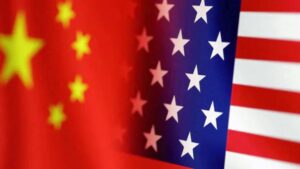The US is preparing to implement its third set of restrictions on China’s semiconductor industry within three years, according to a recent report. The new measures, expected to be announced on Monday, will target over 140 Chinese companies, including Naura Technology Group, a chip equipment manufacturer, and will introduce tighter controls on the export of advanced technology.
As reported by Reuters, citing sources familiar with the matter, the initiative aims to impede China’s advancements in developing cutting-edge semiconductor technology.
Why US is putting restraint on China?
The latest reported action represents one of the Biden administration’s final significant efforts to curb China’s access to and production of semiconductors, particularly those used in artificial intelligence and military applications, which the United States considers a national security threat.
Must Read: Chameleon AI: A Revolutionary Tool for Protecting Users from Facial Recognition Scanning
According to Reuters, the measures, announced just weeks before the inauguration of Republican former President Donald Trump, are expected to remain in place under the upcoming administration.
What will the new rules ban?
The reported restrictions are poised to affect multiple facets of China’s semiconductor industry, including:
- Export Controls on Chinese Companies: More than 140 Chinese firms, such as chip toolmakers Piotech and SiCarrier Technology, will face new export restrictions, curbing their access to essential U.S. technology and equipment.
- Advanced Memory Chip Restrictions: Shipments of high-bandwidth memory (HBM) chips, vital for AI training and other advanced applications, will be limited.
- Expanded Export Authority: The U.S. will extend its authority to regulate exports of chipmaking equipment manufactured by U.S., Japanese, and Dutch companies in third countries to specific Chinese chip factories. This rule will target 16 Chinese firms deemed critical to China’s advanced chipmaking ambitions.
According to the Reuters report, these measures are expected to affect prominent U.S. chip equipment manufacturers such as Lam Research, KLA, and Applied Materials, alongside international companies like ASML.
Exemptions from Ban
The report states that equipment produced in Israel, Malaysia, Singapore, South Korea, and Taiwan will be subject to the new rule, while Japan and the Netherlands will be exempt. The expanded foreign direct product rule will apply to 16 companies on the entity list, considered critical to China’s advanced chipmaking goals.
China’s response
China has strongly opposed the US actions. Chinese foreign ministry spokesman Lin Jian stated that such actions undermine the international economic trade order and disrupt global supply chains, according to the report. He also emphasized that China would take measures to protect the rights and interests of its companies.
Also Read: Watch: Biden Gives Thumbs Up, Blows A Kiss From Air Force One After Pardoning Son Hunter













